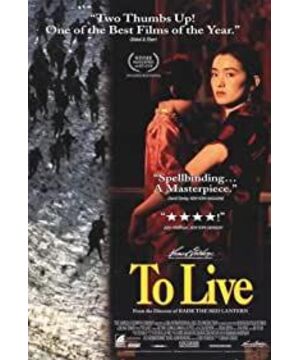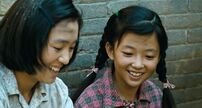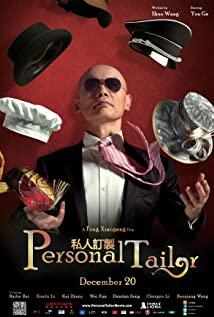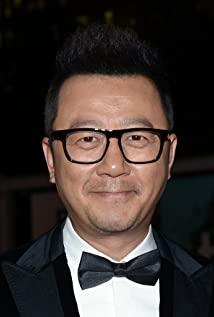"Alive" is one of the most representative films directed by Zhang Yimou. Its profound theme of "constantly struggling to survive" is deeply rooted in the hearts of the people and has moved many audiences. Small townspeople have found their source of strength in their struggles. And in "Alive", the theme of "constantly struggling to live" can be so profound. The most important thing is to rely on the distinctive, ordinary but real characters in the movie; the transformation of the era background that is rich, profound and appropriate; in order to highlight Struggling, alive and specially arranged tragic but not tragic, storytelling and real movie plot.
—The main characters struggling in the slit, ordinary but true self. In the
movie "Alive", the main characters include Fugui, Jiazhen, Erxi, Chunsheng, Long Er and more than a dozen other characters. The structure and arrangement of these multiple characters clearly shows that Zhang Yimou has put a lot of effort into highlighting the theme of the film. Now let's analyze some of the main characters.
Looking at all the characters, the biggest thing in common is that they all live in the cracks of society. They are ordinary and real, but they also have their own most distinctive and real personalities. Even Long Er, who deceived all of Fugui's property and was shot because of the property he owned, was just a helpless person under the oppression of life. "Alive" deprives him of his right to live. And Chunsheng, who witnessed the change of family property before and after this, is also an image that profoundly interprets "alive". From an ordinary little entourage to surviving the hail of bullets with Fugui, to the mayor who fulfilled his desire to "drive", Chunsheng realized his longing for life and the future, but he was let down again and again in the whirlpool of life. He lost his color, was overworked and accidentally killed Youqing, and was persecuted as a capitalist roader during the Cultural Revolution. Ultimately, Chun lives in self-blame and can't stand it. At this time, "living" was far away from him, and in the end it became the biggest reason for him to live. It was Jiazhen's sentence "You owe our family a life! You have to live well!", which was his repayment to another life, It is forgiveness, it is liberation.
And the protagonist of the film, Fu Guizheng, was deprived of his property. After losing his "better life", he learned the value of life and the truth of life in the bitterness of life. Although it has gone through the death of the father, the death of both children, and the dispersal of the family property, it has also gone through a hail of bullets, the marriage of the daughter, the happy family, the momentary happiness of life, and the beauty of life. And this also allows us to see the profound expression in the movie "while living and constantly struggling", but also allows us to see another kind of reverence for life and longing for life, a kind of touch in grief, a kind of grief An uplifting motivating force.
-Real rich, profound and appropriate transformation of the era background
"Alive" is a story of living struggles that shows us one by one in a very broad historical background. This is a realistic portrayal that reflects the historical reality and the people of the society. The narrative starts from the late period of the Kuomintang rule, to the war of liberation, the land reform movement, and then to the period of steel smelting, natural disasters, and the Cultural Revolution. One after another era background has become the directional and important background for the theme of "alive", and Zhang Yimou does not focus on the historical background, but uses more brushes and inks to highlight the blessings, honors, and wealth through these historical backgrounds. Jiazhen, Chunsheng and other characters and movie themes.
Long Er is first and foremost the beneficiary of the traditional feudal crevice. The beginning of the film shows us the background of a traditional handover. Fugui, who originally had a thousand family fortune, lost the gambling again and again under Long Er's many temptations. With all the wealth of the family, his father died of anger, his wife and daughter left, a feudal traditional figure became nothing in the alternation of times. This also seems to herald a shift in this background, as well as the beginning of the protagonist Fugui's beginning to become a character struggling to "live". Then came the period of the war of liberation, when they had to be recruited to serve as soldiers, and in the process of fighting, "alive" also seemed to be the most real embodiment. Fugui, Chunsheng, and veteran Lao Quan were drunk, and after a night passed, they found that all the soldiers in the platoon they were in had been killed by the enemy, leaving only the three of them, and the enemy was about to arrive. Then, Fugui and Chunsheng watched Laoquan being killed by the enemy, which made us see the fragility and helplessness of life. Perhaps, life and death are in a moment, and in an unpredictable moment, the blessing of being captured Gui and Chunsheng relied on the shadow puppet show and finally returned home alive. And the age of steelmaking is a profound manifestation of being alive. Zhang Yimou also deliberately arranged for Youqing to die unexpectedly in this age. In particular, Jiazhen insisted that fifteen dumplings be given to Youqing to eat. In those days when there was no meat, the lively elf Youqing stopped at the moment after three days and three nights of continuous work, and he could no longer eat dumplings filled with pork.
Then came the era of the Cultural Revolution. This revolution also cost Long Er's life, and also made Chun Shengge, who became the district chief, a capitalist roader. Chunsheng felt guilty, but at that time he was criticized and his wife was separated. He just wanted to try to repay his "heart debt" and then commit suicide calmly. Jiazhen, who had never forgiven Chunsheng, opened the door and shouted: "Chunsheng , you remember, you owe our family a life! You have to live well!" How long the grief and guilt melted away in one sentence, and living has become the best bridge and reason for forgiveness. After that, Fengxia died in desperation. The experienced old professor was persecuted and ate the steamed bread too quickly. In the end, Fengxia died tragically under the hands of some inexperienced nurses, leaving behind the newly born steamed bread. And at the end, Fugui said to Mantou, "You have caught up with the good times, and the days will get better and better in the future."
In "Alive", the background of the times is a thread that carries the profound theme of being alive. Every era is a profound picture, one that tells us the hope of living, the reverence of life and the expectation for the future. On these backgrounds, Zhang Yimou gradually brought out the story and highlighted the theme by switching between multiple backgrounds. What we can see is a true portrayal of a grand historical background, and a better and better foreground composition.
- In the whole movie of "Alive", a special arrangement of tragic but not tragic, story and authenticity coexisting
, I think there are two clues that run through the whole movie. One is "death" as opposed to "alive", while the other is shadow play.
The first is "death". As far as the Fugui family is concerned, first Fugui's father was mad to death, then Fugui's son Youqing and daughter Fengxia. In addition, there are the deaths of veterans Lao Quan and Long Er. The deaths of the characters in this movie just reflect the meaning of "living". Lao Xu was mad at his son, Youqing was accidentally crushed to death by a wall, Fengxia died of dystocia without timely treatment, and a veteran was shot by the enemy. Death, Long Er was criticized for being a landlord and shot... These are all unnatural deaths, but they are all explained in the movies. They are all tragic, but not completely tragic, at least when they were alive, they were all dead. Get what you want, even if it's not a lot. It's just that these helpless plots seem to tell us that life is impermanent, and what we should do most is to cherish what we have, whether it is the life we have or our life.
Second, another more important clue is "shadow play". From the gambling hall at the very beginning of the movie, shadow puppets have long been shown to us not only as an important and gorgeous transition, but also as a tool for Fugui to live again and again. What we see is no longer just an artistic method or a Survival tool, it has already become Fugui's ideal and belief of struggling to survive. Running through this shadow puppet is a pursuit of life and a grasp of life. Of course, there is also Zhang Yimou's belief in it. After the decline of the family, Fugui relied on shadow puppets; after joining the army and being captured, it was shadow puppets to save his life; in the age of steelmaking, it was also shadow puppets to cheer up. During the Cultural Revolution, in addition to the Four Olds, Fugui burned the shadow puppets, but left the box, which also symbolized that Fugui firmly believed in this belief. In the end, Fugui gave the box to the steamed buns to raise chickens, "You have caught up with the good times, and the days will get better and better in the future." The belief is still there, but Fugui also knows that the days in the future will be better. , Mantou no longer has to live a life struggling to survive. This is a vision for the future.
"Alive" is a profound and outrageous film. This is a narrative, a yearning for living, a longing for life, and a longing for the future. And director Zhang Yimou presents this theme to us in several major cinematic languages. Whether it is those who have passed away like Youqing, Fengxia, and Laoquan, or those who have lived through many hardships like Fugui, Jiazhen, and Chunsheng, through the background of each difficult era, we are even more You should cherish what you have now.
At the end of the movie, the scene where Fugui, Jiazhen and son-in-law Erxi take their grandson Xiaomantou to the graves of Youqing and Fengxia and kneel down seems to tell us the value of life and the treasure of life. The dead are gone, the living should be cherished.
View more about To Live reviews











